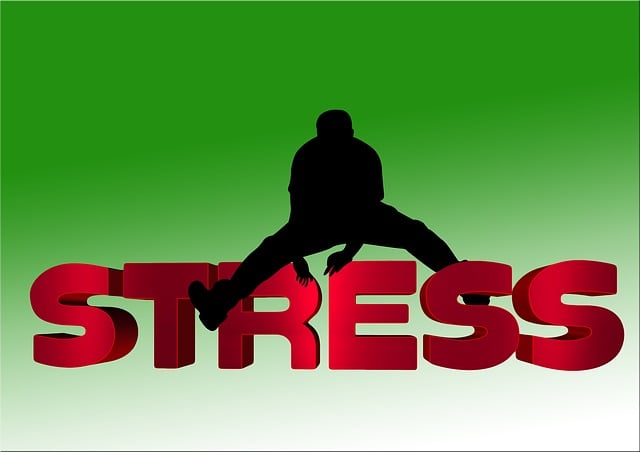Stress, a common response to daily demands, can severely impact health if unmanaged. To counteract this, understanding stress triggers and implementing effective stress reduction strategies is vital. These include efficient time management through task prioritization, structured scheduling, and minimizing time-wasting activities. Techniques like the Pomodoro method and digital tools enhance productivity while preventing mental fatigue. Maintaining a balanced lifestyle with clear work-life boundaries, regular exercise, adequate sleep, and healthy relationships further reduces stress. Proactive management involves recognizing exhaustion signs, setting realistic goals, practicing mindfulness, and regularly adjusting schedules according to personal capacity.
Stress is an inevitable part of modern life, but effective time management can significantly minimize its impact. This article explores powerful strategies to tame time and reduce stress. We’ll delve into understanding the root causes of daily stressors and their effects on overall well-being. By identifying time wasters and prioritizing tasks, you can gain control. Implement proven techniques for efficient time management, and learn to maintain a healthy balance to avoid burnout. Discover how these simple yet effective strategies can revolutionize your life and foster a stress-free existence.
Understanding Stress and Its Impact on Daily Life
Stress is a natural response to various demands and pressures in our daily lives, but when left unmanaged, it can significantly impact our overall well-being. It affects not just our mental state but also physical health, leading to issues like increased heart rate, muscle tension, and sleep disturbances. Understanding stress is the first step towards implementing effective stress reduction strategies. By recognizing the triggers—be it work overload, financial worries, or personal relationships—individuals can begin to develop coping mechanisms.
In today’s fast-paced world, where demands are ever-present, adopting efficient time management techniques becomes crucial for stress mitigation. Prioritizing tasks, setting realistic goals, and creating structured schedules enable individuals to gain a sense of control, reducing the overwhelming feeling often associated with stress. These strategies not only enhance productivity but also foster a healthier and more balanced lifestyle.
Identifying Time Wasters and Prioritizing Tasks
Identifying time wasters is a crucial step in implementing effective stress reduction strategies. Many daily activities can consume significant amounts of time without contributing to meaningful goals or tasks. Common time wasters include excessive social media scrolling, unfocused meetings, and procrastination on important projects. By becoming aware of these distractions, individuals can start to allocate their time more efficiently.
Prioritizing tasks is key to minimizing stress. It involves evaluating the importance and urgency of each task and focusing on high-impact activities first. Utilizing tools like the Eisenhower Matrix, which categorizes tasks into urgent, important, not urgent, and not important, helps in organizing responsibilities. This strategic approach ensures that time is spent on what matters most, reducing feelings of overwhelm and promoting a sense of control over one’s schedule.
Implementing Effective Time Management Techniques
Implementing effective time management techniques is a powerful stress reduction strategy. It involves prioritizing tasks, creating structured schedules, and eliminating time-wasting activities. By focusing on what’s important and allocating specific time slots for different responsibilities, individuals can achieve a sense of control over their day. This, in turn, reduces the overwhelming feeling often associated with heavy workloads or tight deadlines.
One key technique is the Pomodoro method, where work is divided into focused intervals, typically 25 minutes, followed by short breaks. This approach enhances productivity while minimizing mental fatigue. Additionally, using digital tools like calendar apps and to-do lists can help keep track of tasks and deadlines, ensuring nothing slips through the cracks. Regularly reviewing and adjusting these systems ensures they remain effective stress reduction strategies tailored to individual needs.
Maintaining Balance and Avoiding Burnout
Maintaining a balanced lifestyle is an effective stress reduction strategy, as it helps prevent burnout. This involves setting clear boundaries between work and personal time, ensuring adequate sleep, engaging in regular physical activity, and cultivating healthy relationships. By allocating specific periods for each aspect of life—work, leisure, self-care, and social connections—you create a structured routine that promotes well-being.
Avoiding burnout requires recognizing signs of mental and physical exhaustion and taking proactive measures. This can include setting realistic goals, prioritizing tasks, learning to say no when needed, and practicing mindfulness or relaxation techniques. Regularly reviewing and adjusting schedules ensures that commitments align with personal capacity, preventing overwhelming situations that contribute to stress.
By understanding the impact of stress on daily life and implementing effective time management techniques, individuals can significantly reduce stress levels. Identifying and prioritizing tasks, eliminating time wasters, and maintaining a balanced schedule are key components of successful stress reduction strategies. By adopting these practices, folks can foster a sense of control, enhance productivity, and ultimately, thrive in even the busiest of lives.
